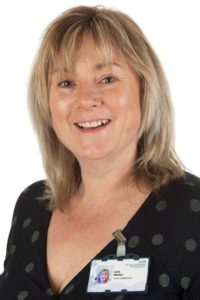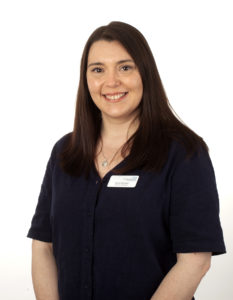Principal Investigator: Lois Mellor

Lois Mellor is Director of Midwifery at Doncaster and Bassetlaw Teaching Hospitals NHS Foundation Trust. Lois qualified as a registered nurse in 1991 in London and as a registered midwife in 1994 in Cheltenham. Lois has had a varied career working in various parts of the UK as a midwife, practice nurse, specialist midwife and Matron.
Lois is passionate about midwifery and has spent a significant part of her career in midwife-led units in rural England and Scotland. During her time in Scotland, Lois also worked as a child development lecturer in a college as part of a project to support single mothers back into employment.
Lois has a keen interest in governance and risk and was appointed as the first governance midwife in the Yorkshire region in 2005. She continued in this role until 2014 when she was appointed as Intrapartum Matron at Calderdale and Huddersfield. Lois spent 5 years leading an excellent team to make improvements in services for pregnant people and their families. She moved to DBTH in 2019, initially as Head of Midwifery, and then as Director of Midwifery in 2020. Lois is passionate about ensuring that pregnant people and their families have the best service possible. She is proud to lead a team that is invested in making the maternity service at DBTH the best and believes this project to be a cornerstone of this.
Research Midwife for BaBi-D: Kerry Dooley
Kerry Dooley, who initially joined the Trust in 2013, has worked across all areas of the Maternity Department between the Trust’s Doncaster and Bassetlaw sites in her almost decade with DBTH.
The University of York graduate, who is also the Clinical Lead for new study ‘Born and Bred in Doncaster’ (known in the shortened form of ‘BaBi-D’), is passionate about increasing the research portfolio across the Children and Families directorate within the hospitals.
Kerry said: “Ultimately by doing this role I would like to help improve the care women and their families receive locally and nationally through research.”

Kerry wasted no time getting stuck in and alongside leading Babi-D she is supporting studies exploring hypertension in pregnancy, fertility and the care given to women with rheumatoid diseases whilst pregnant.
It is vital to have speciality nurses and midwives who raise the profile of research and increase research engagement, Kerry explained.
She said: “Evidence shows that hospitals active in clinical research have better patient care outcomes not only for patients involved in trials but also by driving improvement across our services.”
For Kerry, one of the main draws to the role as Research Midwife was the opportunity to get involved with Babi-D, one branch of a larger national cohort study.
Inspired by ‘Born in Bradford’, a study that initially tracked the health and wellbeing of over 13,500 children and their parents for nearly four years, BaBi-D focuses primarily on the data collection of pregnant women in Doncaster.
The aim is to use and analyse this data to better understand the health of our local population with long-term benefits such as improved and tailored health services and a reduction in health inequalities.
Kerry said: “Studying babies from before birth is a really powerful way of understanding the many influences that shape our lives.”
Content out of date? Information wrong or not clear enough? Report this page.
